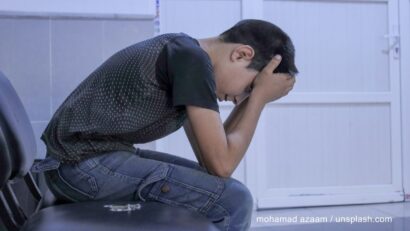The new academic year and the real estate market
Accommodation is one of the biggest problems students in Romania struggle with

Christine Leșcu, 03.10.2018, 12:09
The beginning of October traditionally marks the start of a new university year. Statistics show that Romania ranks last in the EU in terms of the number of university graduates, which is 25.6% of the people aged between 30 and 34. Moreover, in the past few years the number of people who take the bachelors degree exam has also decreased. For example, in 2009 more than 870,000 Romanian students registered for the graduation exam, but the number dropped to around 383,000 in the 2016-2017 academic year. At the same time, Romania comes 5th in the European classification of countries with the biggest number of students studying abroad.
Romanians who choose to study in the country can opt for one of the big university centres here, such as Bucharest, Cluj, Iasi or Timisoara. The fact that most students come from outside these cities leads to another problem, related to accommodation and the limited number of rooms in campuses. Alina Simion, head of the Students Association with the Bucharest University explains:
Alina Simion: “The Bucharest University has room for around 5,300 students in its own campuses, which are divided between faculties depending on the number of students that each of them have. The Bucharest University has more than 30,000 students, so the number of campus rooms is small and the demand quite big. Of course, the room offer does not cover the demand, and the selection is based on academic performance. There are also social and health criteria, which count in the distribution of rooms.
Although several new university campuses have been built in the past ten years, it is still not enough to cover the demand. The Bucharest Universitys campus in Grozavesti area, for instance, one of the best known in the capital city, is located in the west, close to the Regie campus, the biggest in Romania, made up of 33 buildings, of which 26 are run by the Polytechnic University and 7 by the Medicine University. There are other campuses as well, some located close to the faculties, some towards the citys outskirts. Renting or even buying an apartment or a studio is another solution that many students opt for. The demand is so big every fall that a new phenomenon has emerged in the Romanian real estate market. Radu Zilisteanu, an expert in the real estate field, explains:
Radu Zilisteanu: “Generally, in the cities that are also big university centres, the real estate market is marked by a new phenomenon every autumn, namely, the demand exceeds the offer, resulting in an increase in prices. This has been a regular phenomenon for years now. This year, however, it was doubled by another phenomenon, specific to this period, namely, the fact that the ROBOR index based on which interest rates on mortgage loans are calculated, has grown significantly. This has restricted Romanians access to mortgage loans. Therefore, students arrival in the great university centres and the rather more difficult access to mortgage loans, which forced those who sought to buy property to rent in the city instead, have jointly led to a rather high demand in the rental market and to an increase of rents. Because of that increase, there are students who make groups of three or four and who rent three or four-room flats together to reduce individual costs.
Experts estimate that this year, studio rents will be almost 20% higher than in the regular real estate transaction seasons. However, this solution is only accessible to those who have above-the-average budgets, given that the monthly rent for a studio flat ranges from 75 to 200 Euros. Comparatively, in the Regie campus, the monthly rent for a room does not exceed 35 Euro in the winter and does not go below 24 Euro in the summer, for students who do not pay tuition fees. For the students who pay their own tuition fees, the summer monthly rent accounts for 49 Euros while for the winter, the monthly rent is around 64 Euros. Monthly rents in the student dorms allotted to the University of Bucharest are even smaller.
The high rents for lodging in town, and also the fact that the number of flats available for rental is limited, make it even harder for students to have access to decent accommodation. Here is Alina Simion again, speaking about that.
Alina Simion: “There are a few students who can afford it, but not so many. Most of the friends I know live in the campus. Rents are quite OK, for the students supported by their parents. But for those who have a job, it is quite difficult to pay the rent all by themselves, since the rent accounts for 150 Euros per month. It is a bit too much for a student to be able to afford a flat with decent living standards. I have been living in a campus room for four years now, and I cannot afford a flat or a studio. I am just wondering how I will get by, money-wise, this year, after Ive completed my Masters. It is rather hard, especially for the students who support themselves and need to attend classes as well. Problems are bound to occur, either with their studies or at their job.
Students would like to rent lodging in town, because there is still a lot more to be done in terms of living standards and hygiene in campus dorms. Cockroaches, rats, shared bathrooms… the solutions to these problems are postponed from one year to the next.
Alina Simion: “Unfortunately, there is no secret that the living standards are still as bad as they used to be. Throughout the years, attempts have been made and are still being made to modernise campuses. However, the bureaucracy at university administration level has prevented it. The furniture is new; new mattresses have been brought in as well. The students paint their own rooms. But these are not the real problems. Bathrooms have been refurbished in Grozavesti. But the shared bathroom facilities are in fact the main problem. “
A new solution has recently been offered: private dorms. There, the rents and the living standards are somewhere halfway between the solutions offered by university campuses and the rented lodgings in town.
(translated by: Elena Enache, Eugen Nasta)






























